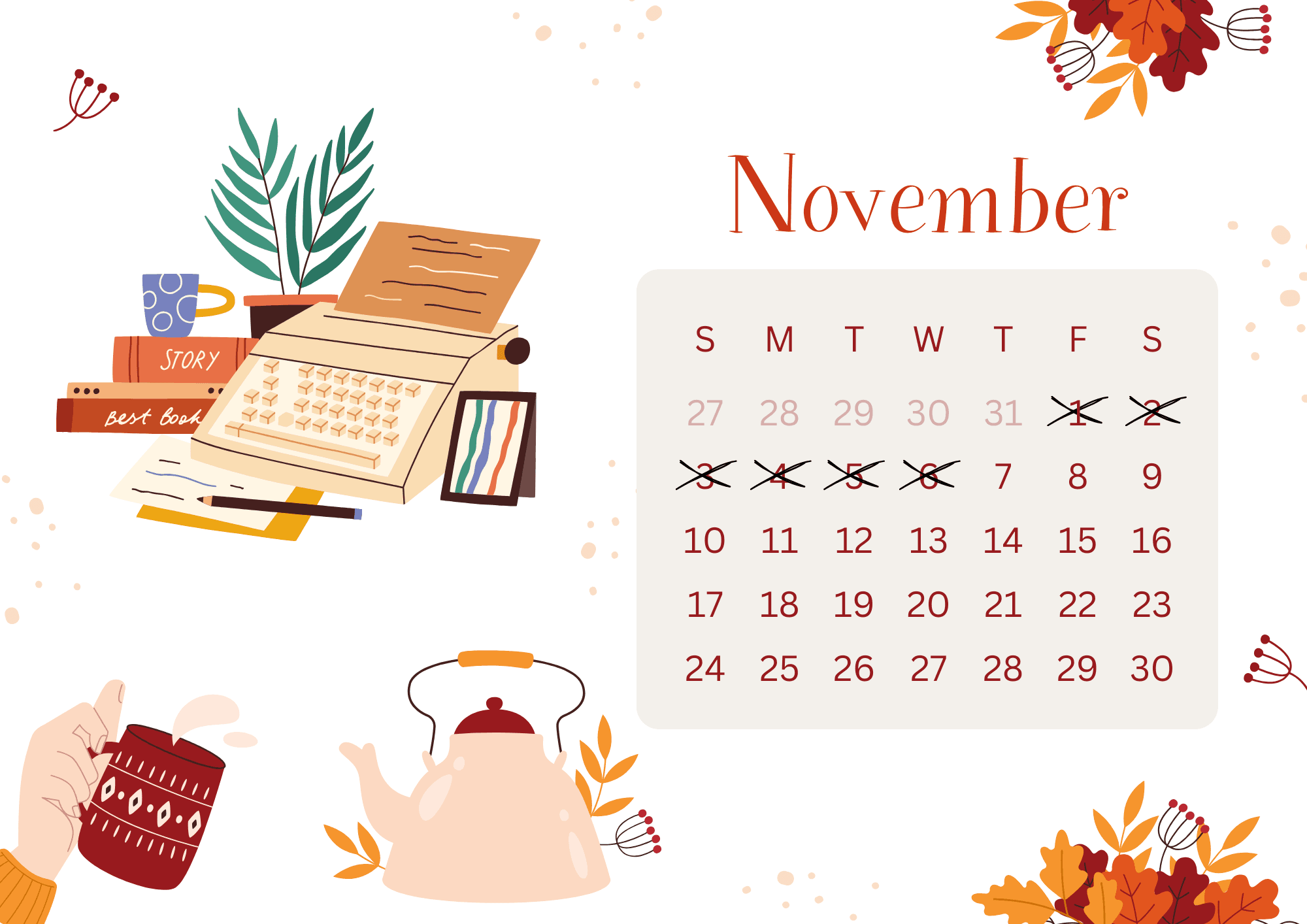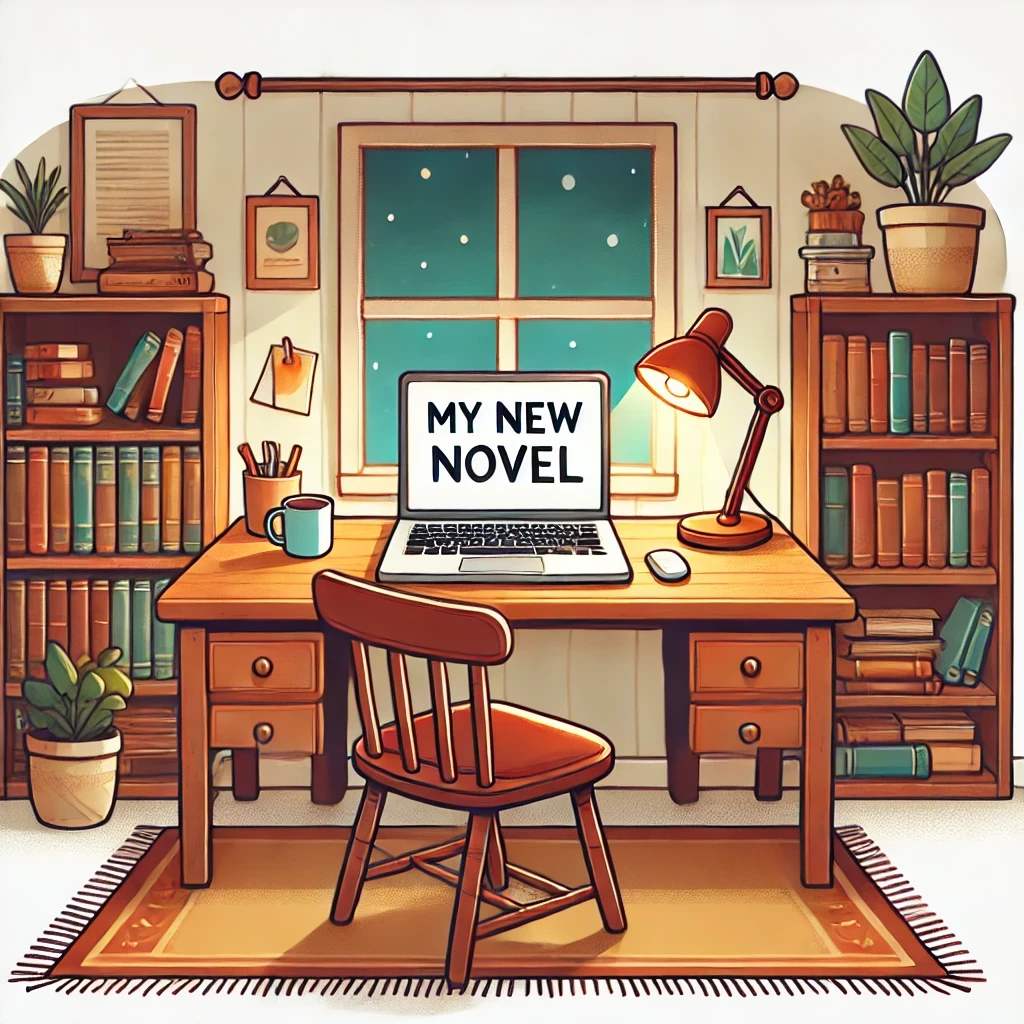How Novel Planning Can Help You Complete a 30-Day Writing Challenge
Taking on a 30-day writing challenge, such as NaNoWriMo, is an exciting opportunity to finally write that novel you’ve been dreaming about. The idea of diving headfirst into your story on Day 1 and letting the words flow is tempting, but maintaining high output throughout the challenge can be extremely difficult. Somewhere around Week 2, you might start to feel stuck or overwhelmed. Going into the challenge with a solid novel plan can help you avoid slowdowns and reach your word goal.
Why Is Planning So Important?
Timed writing challenges are all about speed. You’re not trying to create a polished draft; you’re racing against the clock to get your ideas down. But without a plan, it’s easy to run into roadblocks. Maybe you’ve got a brilliant idea for your opening scene, but then what? Or you know your main character inside and out, but you’re unsure how they’ll move through the plot. A novel plan serves as your roadmap, giving you a clear sense of direction when you need it most.
When you plan ahead, you know where your story is going, and that makes it easier to keep up with your daily word count goals. You can focus on writing instead of figuring out your plot or characters on the fly. In other words, having a plan frees you up to concentrate on the actual writing, so you don’t get stuck or lose momentum. And if you do hit a tough spot, you have your plan to fall back on—a reminder of where you’re headed and what you need to do next.
Key Elements of a Successful Novel Plan
Not sure where to start with your novel plan? Here are some key elements that will keep you organized and on track during the writing challenge:
1. Narrative Structure
This is the backbone of your novel plan. A narrative structure provides a high-level overview of your story, broken into acts. This gives you a general idea of where your story begins, what happens in the middle, and how it ends. You don’t need to get into every single detail (unless that’s your style), but having a clear sense of the major events will help guide your writing. That way, you always have a roadmap, no matter where you are in your story.
2. Character Profiles
Characters are at the heart of your novel, and the more you know about them, the easier it will be to write their stories. Create detailed profiles for your main characters, including their backstories, personalities, and motivations. This will help you understand their actions and reactions as the plot unfolds. For side characters, brief notes on their role in the story and their connection to the main characters can be enough. Having this information ready will keep your characters consistent and believable, even when you’re writing quickly.
3. Setting and World-Building
Whether your story takes place in a small town or a fantasy world, knowing the details of your setting is important. Take time to sketch out the locations, rules, or historical background relevant to your novel. This will not only help you create vivid scenes but also save you time when describing settings as you write. Plus, having a strong sense of place can inspire new plot ideas and character developments.
4. Themes and Subplots
Knowing the themes you want to explore can guide your storytelling and help you stay focused on the message you want to convey. Subplots are also useful for adding depth to your story. They can be connected to your main theme or serve as a way to develop your characters further. Including these in your novel plan gives you extra material to work with, ensuring your novel has layers and feels more complete.
5. Event Breakdown
Some writers find it helpful to break their novel into events. This can be as simple as writing a one-sentence summary for each event you plan to write. Having a list of events ready can make it easier to keep up with the writing challenge’s fast pace. If you’re not sure how an event fits in, you can rearrange or add to the list as you go. The goal is to have a quick reference you can turn to whenever you feel stuck.
Using Digital Tools for Novel Planning
While some people prefer to plan their novels on paper, digital tools offer a lot of advantages, especially for achieving a high word count in a short period of time. Platforms like Notion, Scrivener, and other writing apps make it easy to organize all your notes, outlines, and story elements in one place. Digital planning tools allow you to access your work on multiple devices, so you can review your plan or write new scenes wherever you are. Whether you’re at your desk or working in a coffee shop, you’ll always have your plan at your fingertips.
Digital tools also allow for quick edits and adjustments. If you decide to change a character’s backstory or rearrange scenes, you can do so without having to rewrite or reorganize your notes manually. This flexibility is a huge plus during a writing challenge, when speed is essential. And if you collaborate with other writers or participate in writing groups, digital platforms make it easy to share your plan and get feedback.
How to Make Your Novel Plan Work for You
Having a novel plan is one thing, but making it work for you during a 30-day writing challenge is another. Here are a few tips to ensure you get the most out of your planning:
1. Stay Flexible
Your novel plan should be a guide, not a set of strict rules. It’s okay if you deviate from the plan or change things as you go. In fact, that’s part of the creative process. The goal is to have a strong starting point that you can build on, not a rigid outline that stifles your creativity.
2. Set Word Count Goals
Your plan should include daily or weekly word count targets. Breaking down 50,000 words into smaller chunks can make the challenge feel more manageable. Knowing what you need to accomplish each day will help you stay motivated and give you a clear sense of progress.
3. Use Your Plan as a Reference
When you hit a tough spot or get stuck, refer back to your plan. Whether it’s reviewing your character profiles to understand their next move or looking at your plot outline to find your way forward, your plan is there to help you get back on track.
Get Ready for the Challenge with a Strong Novel Plan
A well-thought-out novel plan can keep you on track, help you stay motivated, and make the writing process smoother and more enjoyable. By taking the time to create a plan that covers your plot, characters, settings, and themes, you give yourself a clear roadmap for your writing journey. And with the right tools and mindset, you’ll be ready to tackle those 50,000 words and bring your story to life.
If you’re gearing up for NaNoWriMo in November or a similar challenge, start by building a strong foundation with our Novel Plan for Notion template. It could be the key to turning your idea into a finished draft and making this your most productive and successful writing month yet!









